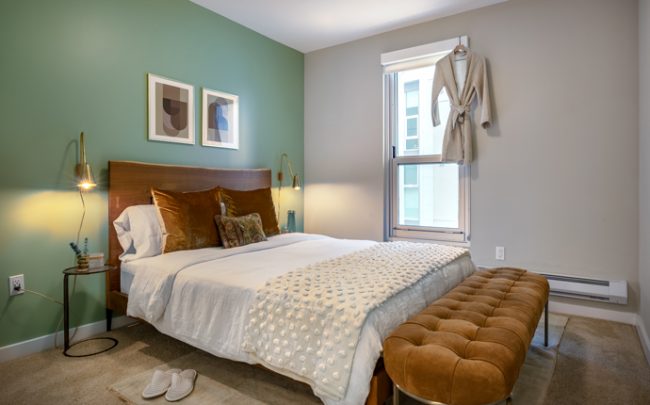Blueground and its new investors are banking on fast growth and a “recession resistant” model.
The luxury-rental company announced its Series B funding round raised $50 million in equity financing. The round was led by Airbnb investor Laurence Tosi’s investment firm Westcap Group and Europe-based Prime Ventures. It brings Blueground’s total equity funding to $78 million.
CEO Alex Chatzieleftheriou said the cash infusion will allow the company to expand to London, Paris and Seattle before year end and to double its technology development team.
Blueground signs agreements with landlords to furnish luxury apartments and then lease them out for at least one month at a time. The company has a client-facing app for tenants to report issues and pay bills. It also has a booking platform and an internal property management system to track its portfolio, currently 2,800 units across nine cities.
READ MORE


The company claims that 50 percent of its renters book directly on its website while another 33 percent are employees whom Blueground houses via deals with corporate clients. Only 20 percent of its apartments are rented traditionally, either with agents assisting or advertised directly to consumers on local listing platforms.
In the U.S., Blueground operates in New York, Los Angeles, Chicago, Boston, San Francisco and Washington, D.C.
Chatzieleftheriou said the company earns 30 percent of its revenue in New York with landlord clients including Related Companies, Stonehenge NYC, Pinnacle Group, The Dermot Company and Clipper Equity.

Blueground’s luxury apartments
A one- to two-month Blueground rental for a one-bedroom unit in Manhattan costs roughly $7,000 per month, based on immediate availability. According to the company, New York apartments start at around $2,500.
Blueground aims to grow to 50,000 apartments worldwide by 2023. Chatzieleftheriou said the company plans to go public in the coming years.
The CEO said he’s not concerned by the threat of a downturn because Blueground has weathered recessions in Istanbul, Dubai and Athens, cities where it has been operating for years.
“The model is quite recession-resistant,” said Chatzieleftheriou. He noted that Blueground, unlike the cash-strapped WeWork which similarly partners with landlords to sublease space, signs short-term leases with its landlord partners. The agreements run for one to three years.
“We can renew at new market rates,” he explained.
Though Blueground is not profitable overall, it is in the black in Istanbul, Dubai and Athens, according to Chatzieleftheriou. New York is “moving into profitability,” he said.
Write to Erin Hudson at ekh@therealdeal.com
